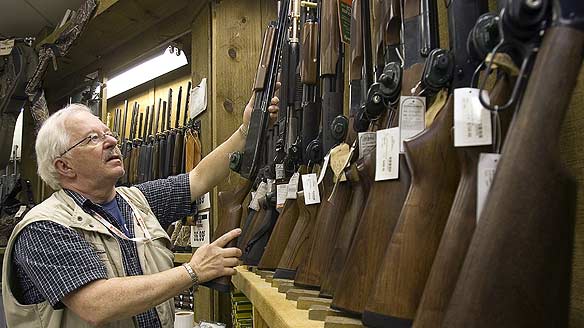Lax Policies North of the Border: Eliminating the Long-Gun Registry

The current session of the Canadian Parliament is currently debating legislation aiming to eliminate the long-gun registry system that has been maintained for many years, a move sponsored largely by the conservative party led by Prime Minister Stephen Harper. Since the conservatives mustered a majority government on May 3, 2011, initiatives to remove the registry and cater to the gun lobby have been anticipated. Some Canadians feel this is simply another step toward fulfilling more sweeping, long-term Conservative Party goals, culminating in an effort to “kill the current gun licensing scheme altogether.” The registry has long acted as a beneficial data-gathering instrument for legislative reform and regulatory analysis, in the pursuit of the restraint of private control of weapons. Authorities who have relied on this information to prevent gun violence throughout the country are concerned over the effects resulting from the elimination of such regulation on law enforcement and the safety and security of Canadians. In essence, the government has moved to eliminate a measure that has, for a lengthy period of time, protected its people from unnecessary gun violence.
The Canadian Auto Workers (CAW) Union has spoken fervently against closing down the registry. CAW President Ken Lewenza insists that its proposed dissolution “is more a show of political opportunism than common sense.” Women’s Programs Director of the CAW, Julie White, has spoken out in concurrence with Lawenza, illustrating that the initiative to save the registry is reflective of “principles of public safety and…a culture of responsible gun ownership.” Others argue that gun regulation should not be weakened because of the resulting inevitable spurs of violence that will further trouble Canadian society. On the anniversary of lethal shootings that had occurred at their school in September of 2006, a group of students from Dawson College requested a discussion with the Prime Minister to consider the costs and benefits of eliminating the registry, but failed to elicit any formative response from Harper’s office. The students’ initiative, however, reveals a stark division in public policy, and the presence of a strong, emotionally charged, level of public opposition to a restrictive society within the Canadian electorate.
The registry’s deconstruction is motivated by an array of objectives. Many see the system as being needlessly officious and unnecessary: most long-range weapons listed in the registry are used for hunting and sporting activities, with such limitations often needlessly inundating hapless citizens with any number of difficulties, along with logistical problems. Candice Hoeppner, a prominent anti-registry Member of Parliament, has advocated for the removal of the registry from the inception of the initiative, insisting that her constituents “are good, salt-of-the-earth people and for so long they have had really nobody in government who has been able to make any changes on their behalf.” A report issued by Dr. Caillin Langmann of McMaster University in support of Conservatives’ efforts to do away with a superfluous reporting system states that “tougher gun laws have done nothing to lower Canada’s homicide rates,” which has seriously questioned the need for defending strict anti-gun laws throughout Canada.
The response to these arguments, however, has manifested itself in what quickly has amounted to a provincial nullification crisis. In other words, Quebec is attempting to create its own directory of long-gun owners in the wake of any registry dissolution, defying a law about to be put forth by the national government that would destroy all federal and provincial records contained in the registry. Quebec’s chief firearms officer has been strictly directed by provincial authorities to secure information from the registry regarding Quebec’s citizenry, and to begin the construction of a province-wide registry. A true dilemma is now unfolding, as Quebec is forced to choose between obeying federal mandate to destroy the directory or conforming to its own electorate and the will of local officials. The national government has remained firmly opposed to individual provincial registries, as has been the case of Prime Minister Harper. Privacy Czar Jennifer Stoddart has insisted, however, that the government has no reason to be so uncompromising. According to Stoddart, the law says nothing that would prevent “the federal government from sharing the data with provincial governments.” In essence, the government has no prerequisite to withhold the information to be found in each province’s registry, especially when that registry has already been financed largely by Quebec’s tax revenue. It simply amounts to a desire on the part of the Conservatives to minimize gun control by granting neither access to the registry data nor permission to create provincial registries.
The removal of the national registry is another example of the government’s flippant attitude towards gun control policy. No one denies that the spread of arms throughout the hemisphere poses a huge threat to international security. The recent “Operation Fast and Furious” scandal in Mexico proves that mismanagement of firearm practices in developed countries presents serious consequences for developing or underdeveloped nations. If guns are made more readily available in Canada, the proliferation of these arms to other, more retrogressive nations that can be dominated by criminal activity becomes even easier. While many long-range weapons to be found within the registry are used for game or sport, the deconstruction of the national registry is a step in a decidedly right-wing direction. The consequences of cavalier ownership and the provision of weapons unchecked by the government could prove catastrophic for Canada and the entire hemisphere.

